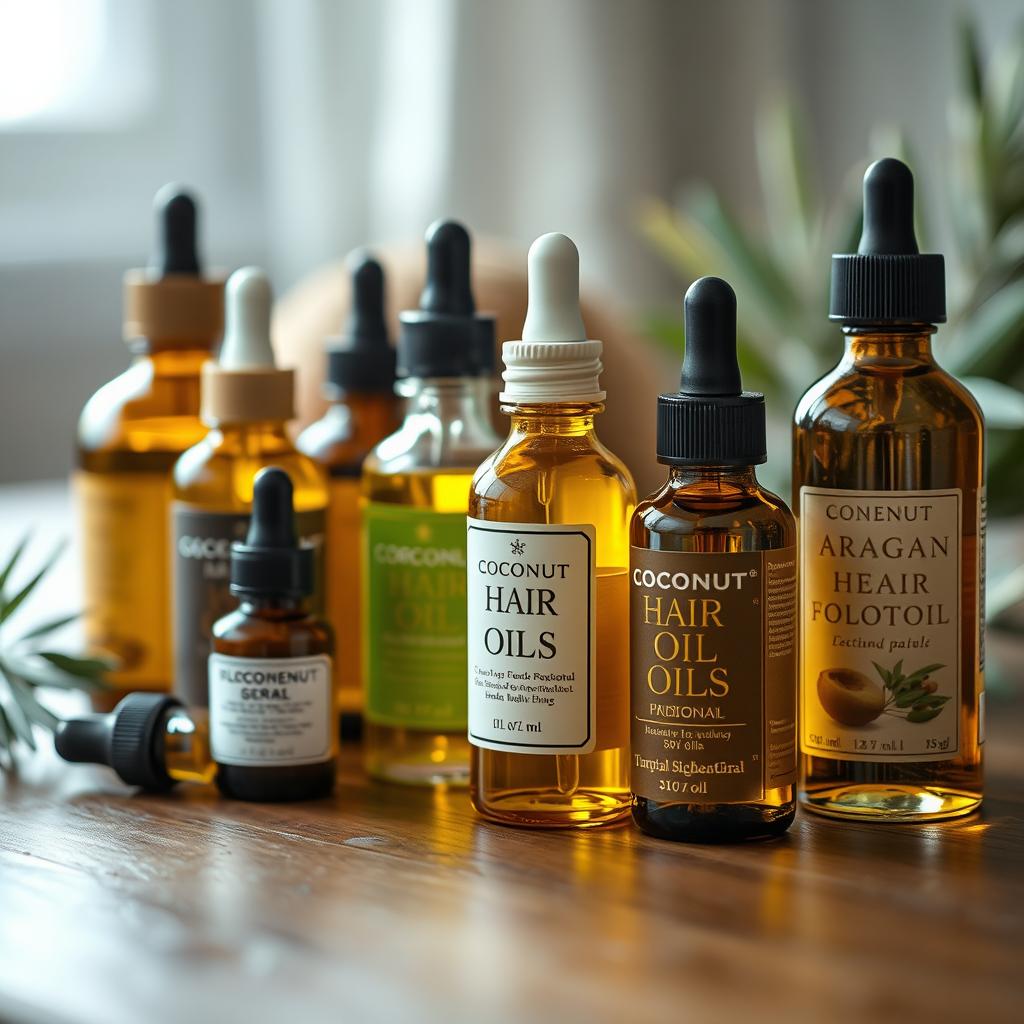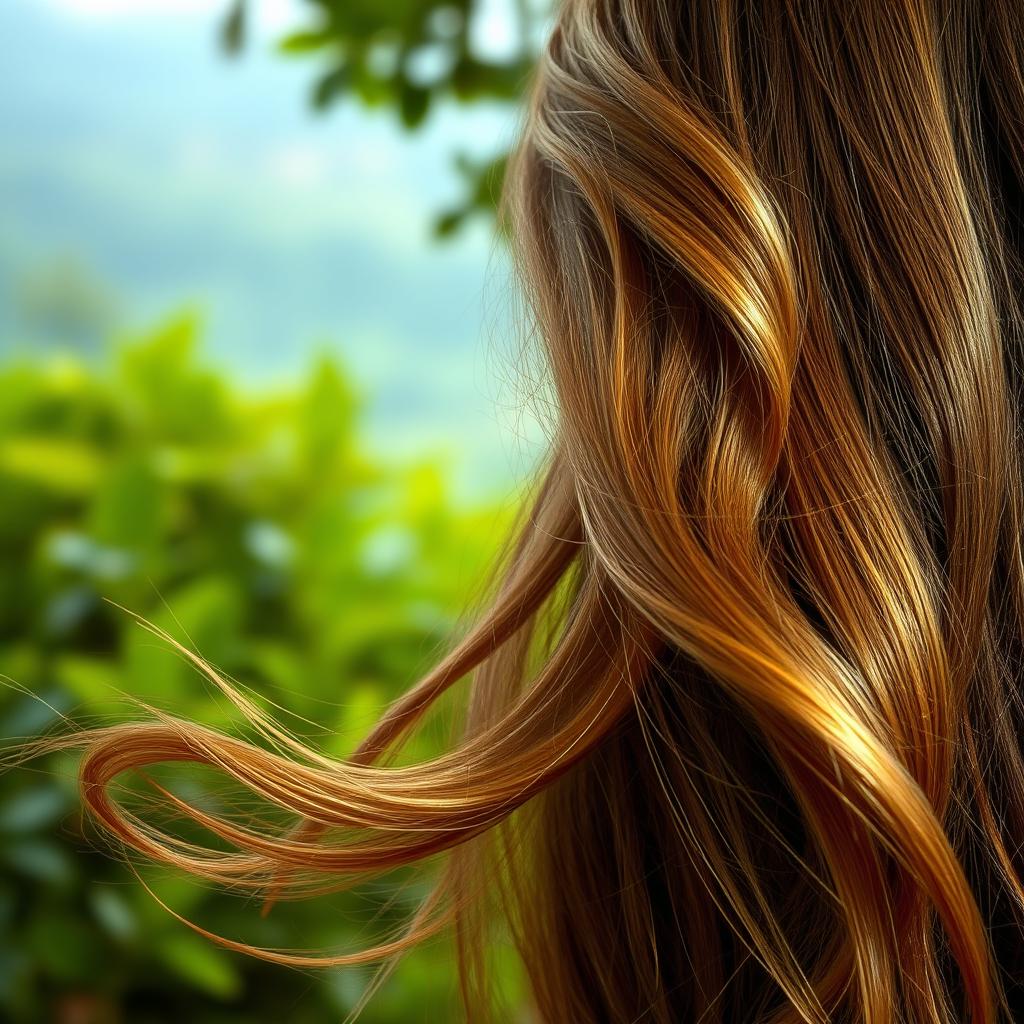We’ve all been there – struggling with dry, brittle hair that just won’t cooperate. But what if the solution was as simple as incorporating the right oils into your hair care routine?
Dry hair can be a real challenge, often resulting from factors like chlorinated water, dry climates, or excessive use of hot styling tools. The good news is that natural oils can work wonders for your locks, hydrating your strands and soothing your scalp.
In this guide, we’ll explore how these incredible oils can transform your parched hair into silky, manageable strands without harsh chemicals or expensive salon treatments.
Key Takeaways
- Discover the top natural oils for dry hair.
- Learn how to use oils to hydrate your hair and scalp.
- Understand the benefits of different oils for various hair concerns.
- Find out how to incorporate oil treatments into your hair care routine.
- Get tips on maximizing the benefits of oil treatments for silky strands.
Understanding Dry Hair: Causes and Signs
Dry hair is more than just a cosmetic issue; it’s a sign that something’s amiss. When your hair lacks moisture, it becomes brittle, prone to breakage, and develops split ends. But what leads to this condition?
What Causes Dry Hair?
Several factors contribute to dry hair. Overusing heat styling tools is a major culprit, as it strips your hair of its natural moisture. Exposure to the sun and pollution also plays a significant role in drying out your hair. Moreover, using harsh shampoos and overwashing can disrupt the natural oil balance of your scalp, leading to dryness.
How to Identify If You Have Dry Hair
If you’re experiencing dry damaged hair, you’ll likely notice a rough texture, dullness, and increased tangling. Your hair might feel like straw, and you may observe more split ends than usual. These signs indicate that your hair is crying out for moisture. Understanding whether your hair is dry or damaged is crucial for choosing the right treatment.
By recognizing the causes and signs of dry hair, you can take the first steps towards restoring your hair’s health and achieving silky, manageable locks.
Why Natural Oils Are the Secret to Silky Hair
Unlock the secret to silky hair with natural oils that work wonders on dry, damaged locks. We’re about to dive into the science behind why these oils are so effective and explore the numerous benefits they offer over commercial hair products.
The Science Behind Hair Oils
Natural oils are rich in fatty acids and vitamins that penetrate deep into the hair shaft, increasing elasticity and making your hair feel softer and less prone to breakage. The molecular structure of these oils allows them to deliver deep hydration exactly where your hair needs it most.
The hair oils we use can be thought of as nature’s own solution for dry hair, closely mimicking the sebum our scalp naturally produces. This makes them more effective than many synthetic alternatives.
Benefits of Using Natural Oils Instead of Commercial Products
So, what makes natural oils superior to commercial hair products? Here are some key advantages:
- Natural oils rebuild your hair’s protective lipid layer, essential for maintaining moisture and preventing future damage.
- Unlike many commercial products that contain silicones, natural oils improve your hair’s condition over time with consistent use.
- The vitamins and minerals in natural oils nourish your hair follicles and scalp, creating an optimal environment for healthy hair growth.
- Many natural oils have antimicrobial and anti-inflammatory properties that can address scalp issues like dandruff and irritation while hydrating your strands.
By incorporating natural oils into your hair care routine, you can say goodbye to dry, brittle hair and hello to silky, healthy hair. Whether used as a hair mask, leave-in conditioner, or added to your shampoo, these oils offer a multitude of benefits for your hair.
Coconut Oil: The Ultimate Moisture Restorer
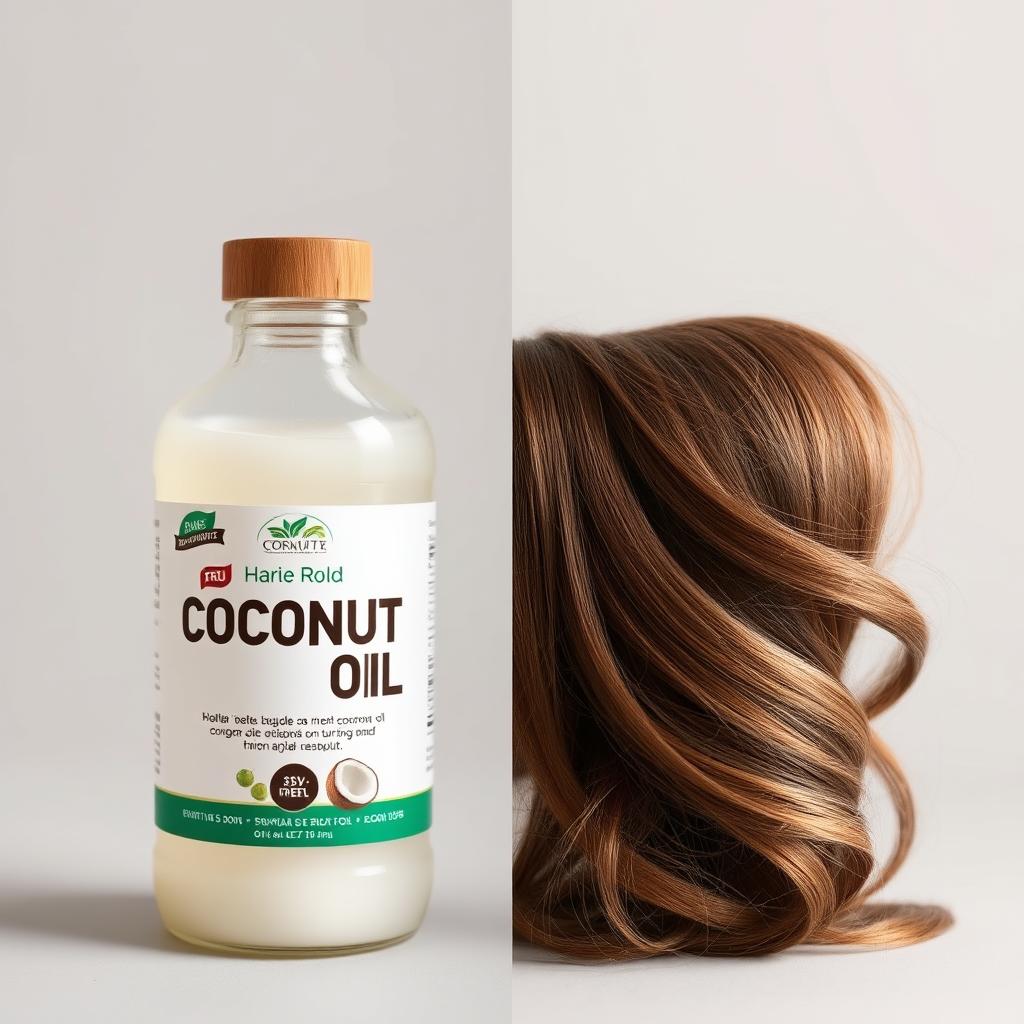
Coconut oil is a game-changer for dry hair, offering unparalleled moisture restoration. We love how it nourishes dry locks, leaving them silky and manageable. Rich in hydrating omega-3 fatty acids and vitamin E, coconut oil adds shine to hair and promotes scalp health – a crucial factor in achieving healthy, vibrant hair.
Benefits for Dry Hair
Coconut oil stands out for its ability to penetrate the hair shaft, rather than just coating it. This is due to its unique composition of medium-chain fatty acids, which have a special affinity for hair proteins. By helping to prevent protein loss, coconut oil reduces the risk of weakened, damaged strands. Research has shown that coconut oil can significantly reduce protein loss in both damaged and undamaged hair when used as a pre-wash treatment, making it an excellent solution for dry, brittle hair.
How to Use Coconut Oil on Your Hair
For coarse or curly hair, a small amount of coconut oil can be used as a leave-in conditioner without leaving a greasy residue. For other hair types, warm the oil between your hands to open the hair shaft, allowing for maximum absorption. Leave it on for as long as you like – even overnight – before shampooing and conditioning as normal. Be sure to rinse thoroughly to remove all oil residue, which may require two rinses. This simple treatment can work wonders for dry hair, locking in moisture and promoting a healthy scalp.
Argan Oil: Liquid Gold for Hair Repair
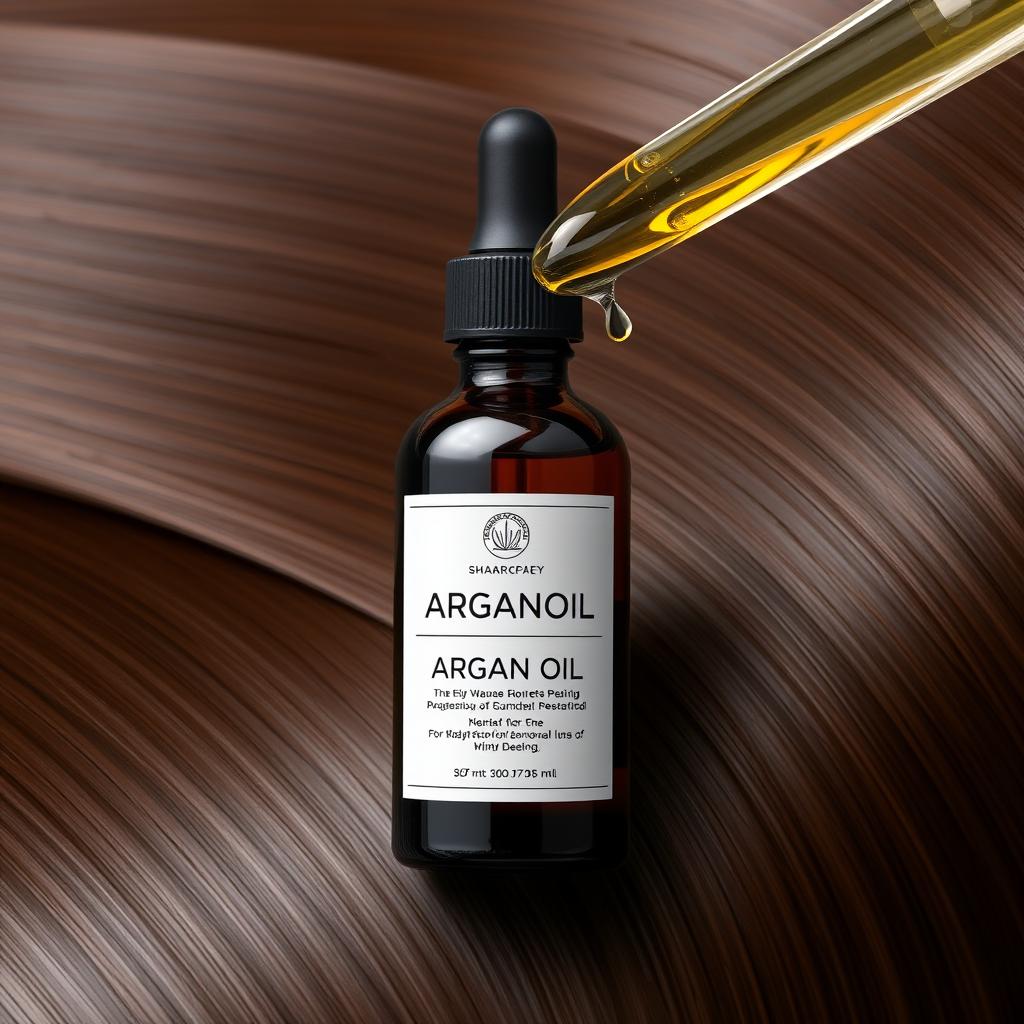
The benefits of argan oil for hair are numerous, earning it the nickname ‘liquid gold.’ This precious oil is rich in vitamin E, antioxidants, and omega fatty acids, making it exceptional for hair repair. Unlike heavier oils, argan oil‘s lightweight molecular structure makes it perfect for all hair types, even fine hair that gets weighed down easily by other treatments.
Why Argan Oil Works Wonders
Argan oil creates a protective barrier around your hair shaft that shields it from environmental damage while simultaneously conditioning from within. For those dealing with heat damage from styling tools, argan oil can help restore elasticity and prevent future breakage when used consistently. It’s also great for adding instant shine and moisture to dry, frizzy ends.
Best Application Methods for Maximum Benefits
The versatility of argan oil makes it a true hair care multitasker. You can use it as everything from a pre-shampoo treatment to a styling product for taming frizz. For maximum benefits, apply a small amount to the ends of your hair, working your way up to the roots as needed. The oil can also be used as part of a deep conditioning treatment to make hair softer and more manageable.
To get the most out of argan oil, it’s essential to use the right amount for your hair type. For thick, curly hair, a generous application may be necessary, while fine, straight hair may require just a few drops. Experimenting with different application methods will help you find what works best for your dry damaged hair.
Olive Oil: Kitchen Staple to Hair Savior
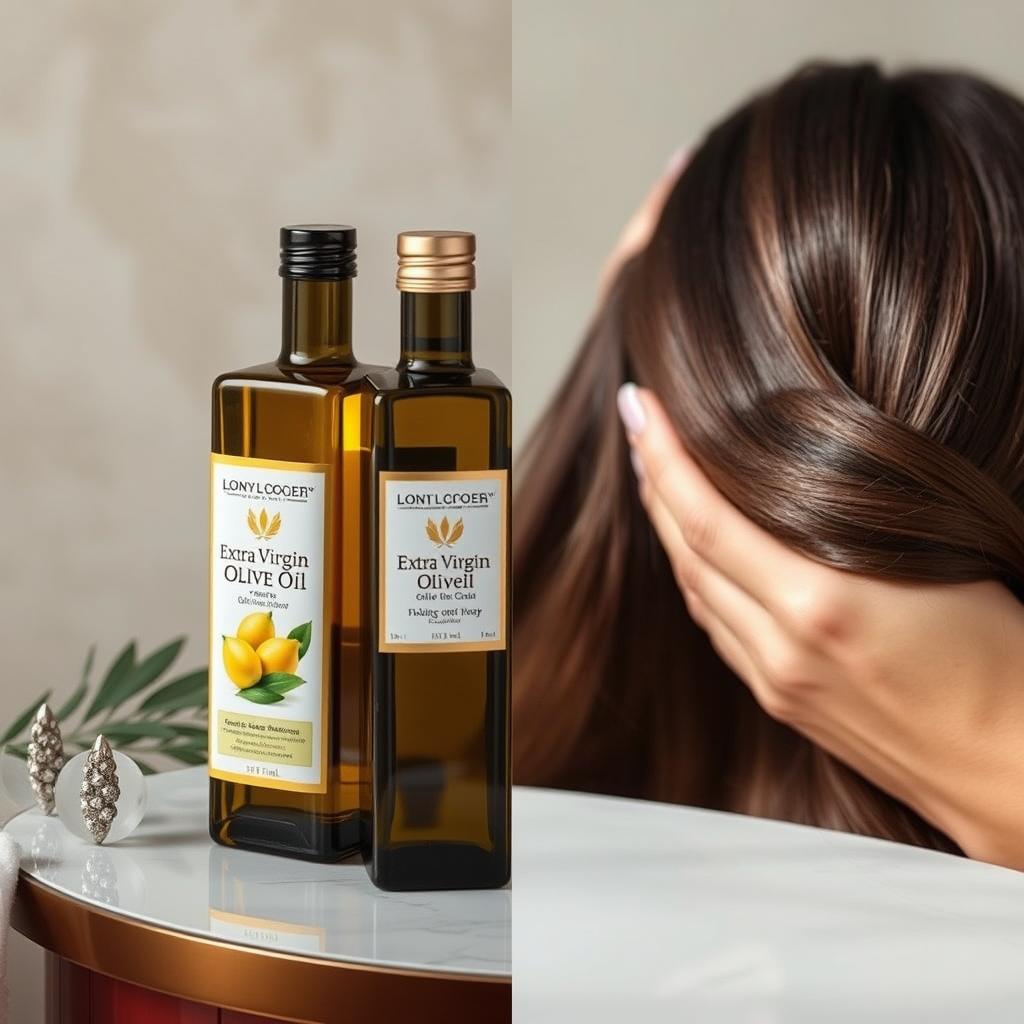
Olive oil isn’t just for cooking; it’s a potent hair treatment that can turn brittle ends into soft, manageable hair. Rich in vitamin E and fatty acids, olive oil moisturizes and protects your hair from environmental damage and free radicals that contribute to aging and hair health issues.
Nutritional Benefits for Hair Health
The nutritional profile of olive oil makes it an ideal hair treatment. It contains softening emollients like squalane and oleic acid, which make hair super soft and manageable. The antioxidants in olive oil help protect your hair from damage, promoting healthy hair growth and reducing the appearance of split ends.
DIY Olive Oil Hair Treatments
Using olive oil for hair care is simple. Start by massaging a generous amount onto dry hair – about 1 or 2 tablespoons for most hair lengths, and up to 1/4 cup for very long or thick hair. Leave it on for up to 15 minutes under a warm towel or shower cap. Then, use a wide-tooth comb to distribute the oil evenly before rinsing thoroughly to avoid any residue.
You can also combine olive oil with other natural ingredients like honey and yogurt to create a nourishing hair mask. This can help lock in moisture and leave your hair feeling soft and silky. For an intense treatment, focus on applying the olive oil to the ends of your hair, where dryness and damage often occur.
Avocado Oil: Deep Nourishment for Damaged Strands
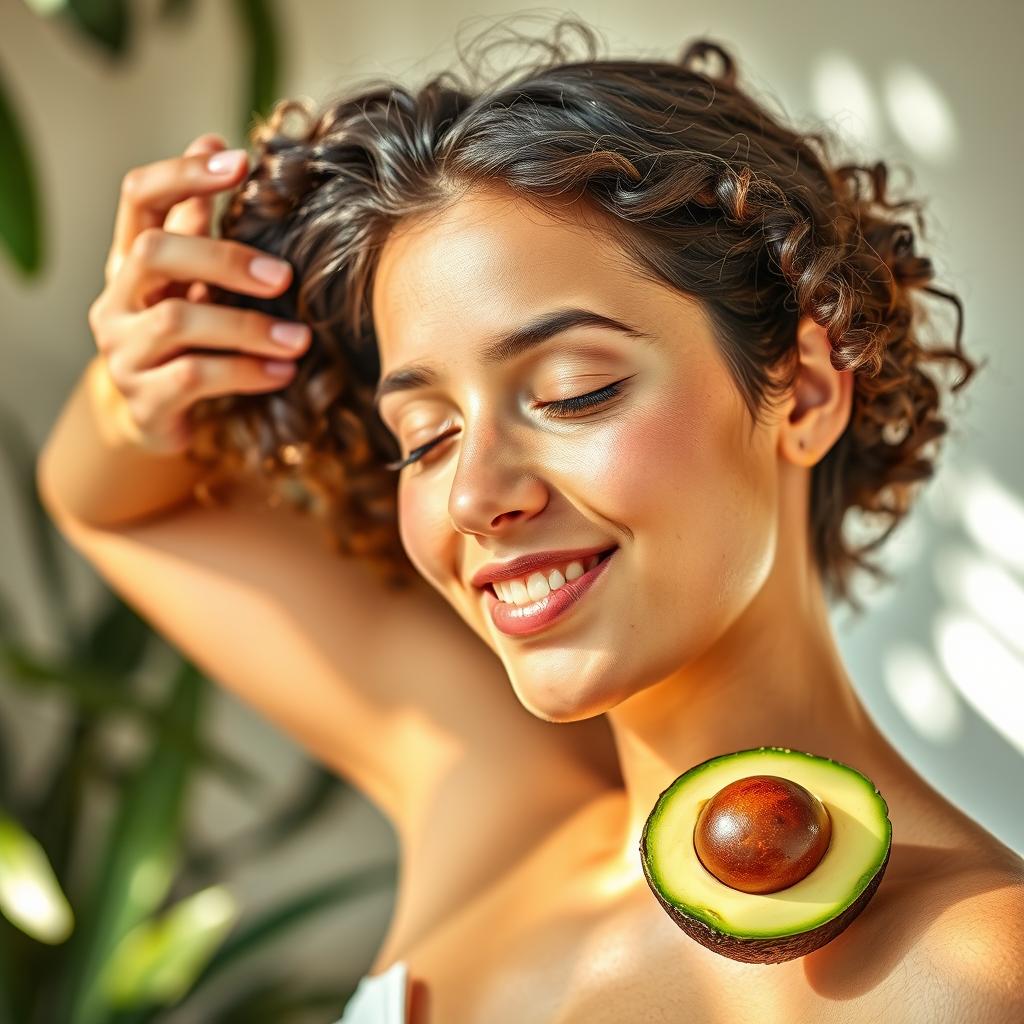
When it comes to repairing dry, damaged hair, avocado oil is a powerhouse of nourishment. Rich in fatty acids, vitamins, and minerals, this oil is essential for restoring health to damaged strands.
Repairing Hair Structure
Avocado oil’s molecular structure allows it to penetrate the hair shaft deeply, making it especially effective for repairing damage from chemical treatments and heat styling. The monounsaturated fatty acids in avocado oil help strengthen the hair cuticle, reducing porosity that leads to moisture loss and frizz.
The oil is also a natural source of biotin, which can strengthen hair and improve its elasticity. With consistent use, avocado oil can help make hair less prone to breakage and more resilient to environmental stressors.
Combining Avocado Oil with Other Ingredients
For enhanced benefits, avocado oil can be combined with other natural ingredients. Mixing it with honey can add extra moisturizing properties, while combining it with egg can provide additional protein for hair repair.
To use avocado oil effectively, you can apply it as a hair mask, leaving it on for up to 3 hours before rinsing. Alternatively, you can use it as a hot oil treatment by gently heating the oil and applying it to freshly washed hair, leaving it on for 20 minutes before rinsing.
7 Natural Oils That Transform Dry Hair into Silky Strands: The Final Three
As we continue our journey to silky strands, we’re excited to introduce the final three natural oils that will revolutionize your hair care routine! These oils are not just any ordinary oils; they’re packed with nutrients and properties that target specific hair concerns, from dryness to breakage.
Jojoba Oil: The Scalp Balancer
Jojoba oil is a game-changer for those struggling with both dry hair and an oily scalp. Its unique composition closely resembles the scalp’s natural sebum, making it exceptional for balancing oil production and hydrating without greasiness. This means it moisturizes dry ends without exacerbating oiliness at the roots!
When it comes to replicating your hair’s natural oils, jojoba may be up there with the best. It’s made up of incredible fats that penetrate the hair cuticle, moisturizing from the inside out!
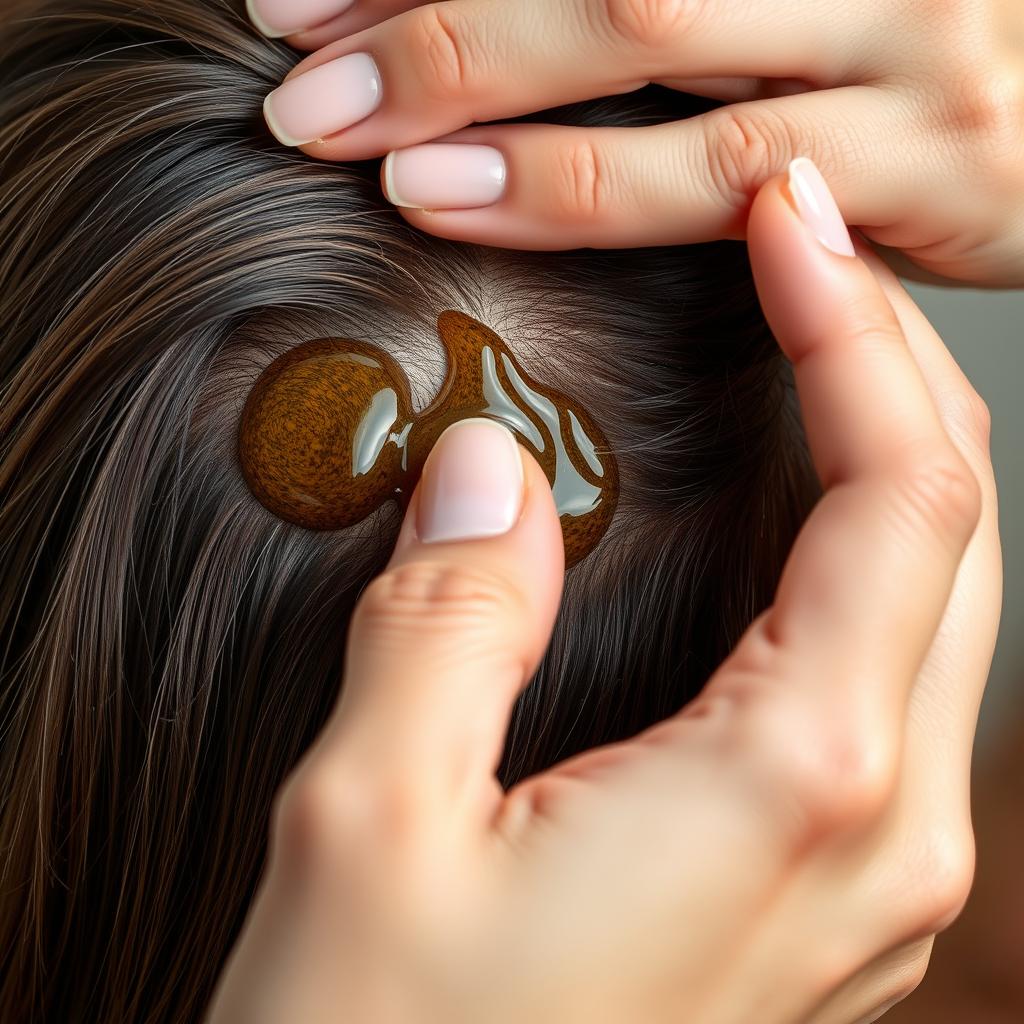
Almond Oil: The Strengthener
Almond oil is the strengthening superhero of hair oils! It’s filled with omega-9 fatty acids, vitamin E, and protein that can strengthen hair and prevent breakage. This nut-derived oil softens hair with its emollient qualities that protect and moisturize hair.
The omega-9 fatty acids in almond oil don’t just condition – they help stimulate hair follicles and may promote thicker, stronger growth when used consistently.
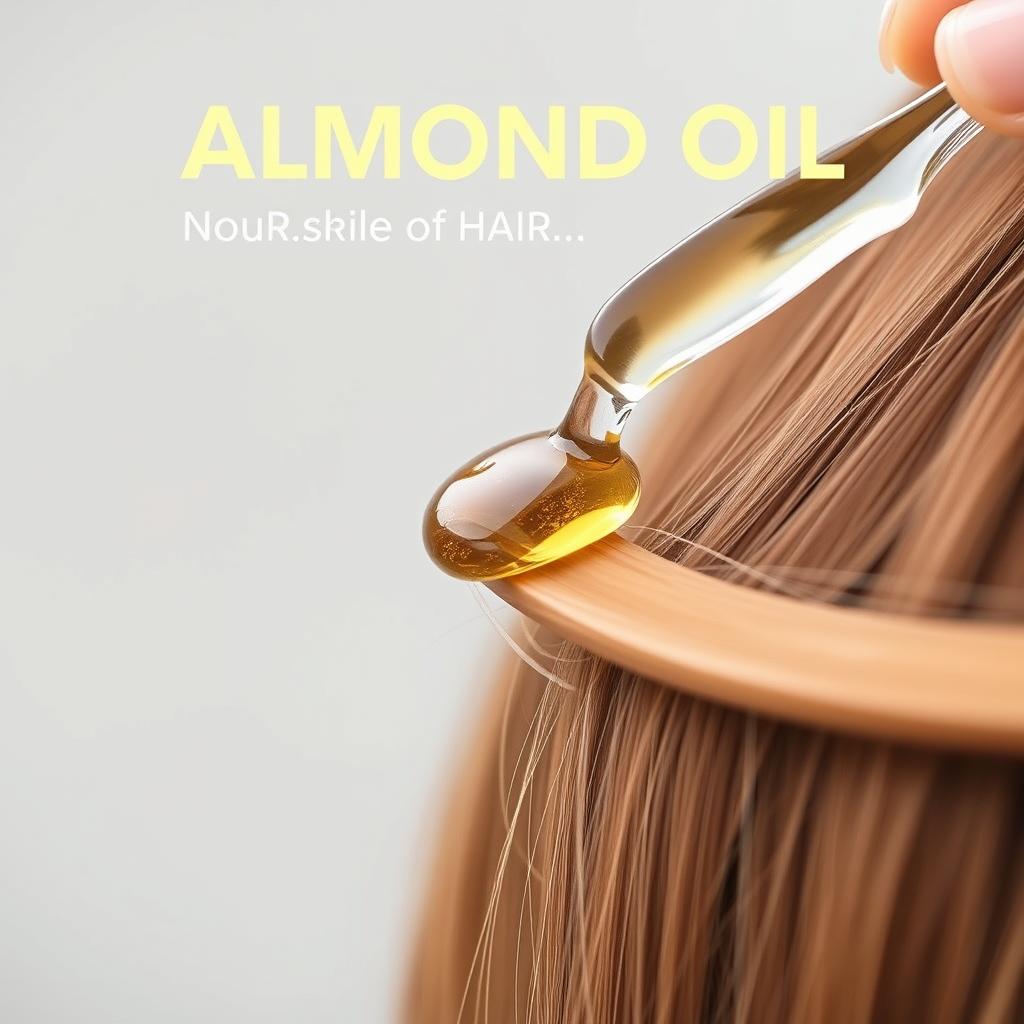
Castor Oil: The Growth Booster
Castor oil might not have the most pleasant scent, but its benefits for hair growth are unmatched! It’s full of ricinoleic acid, which is known to increase blood flow to the scalp and stimulate the hair follicles, whilst reducing inflammation that can trigger dandruff.
For those dealing with thinning hair or excessive shedding, a detailed castor oil scalp massage technique can target hair follicles to potentially increase growth rate and thickness.
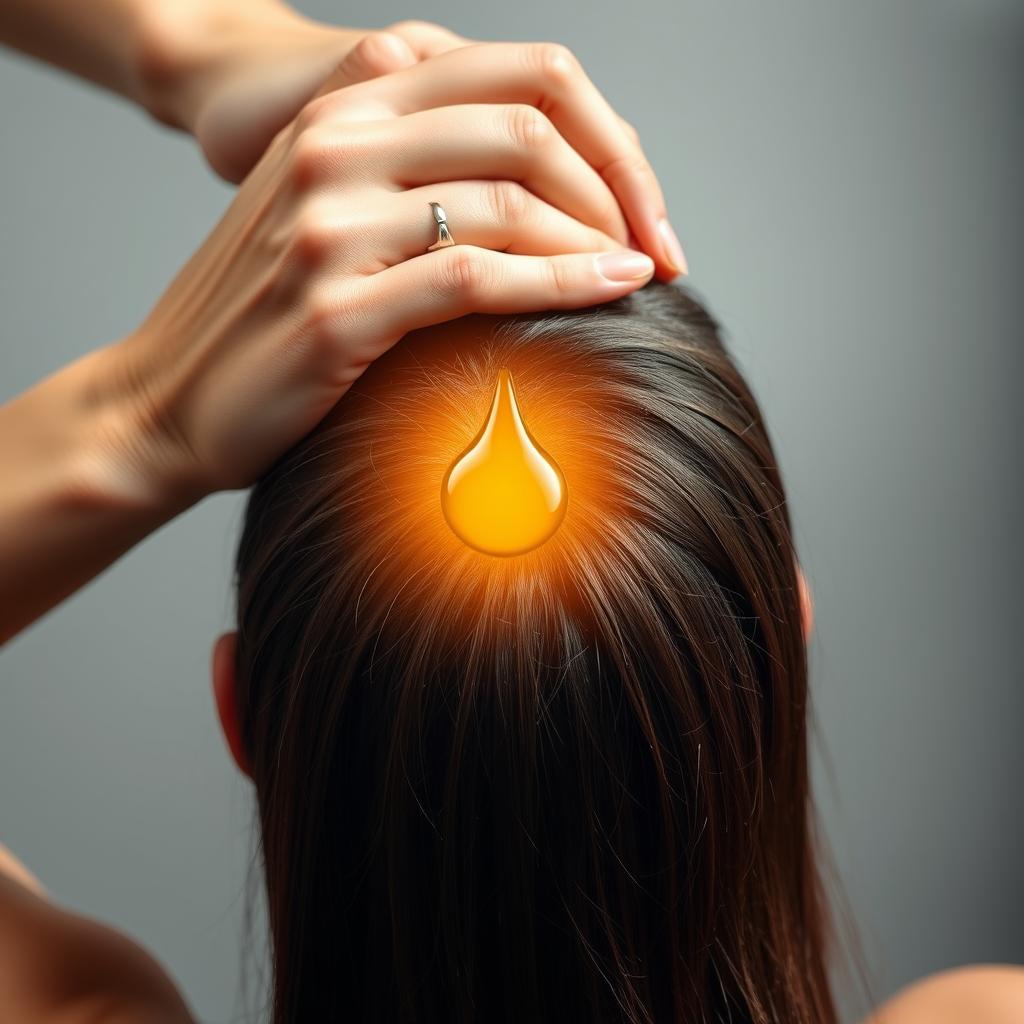
Application Techniques: Getting the Most from Your Hair Oils

To get the most out of your hair oils, it’s essential to use the right application techniques. The way you apply oil to your hair can make all the difference between achieving gloriously silky strands and ending up with a greasy mess.
Pre-Wash Treatments vs. Leave-In Applications
Pre-wash treatments and leave-in applications serve different purposes and are suited for different hair types and needs. Pre-wash treatments, like overnight oiling, involve applying oil to your hair before washing. This helps to lock in moisture and protect your hair from damage during the washing process. To do this, make sure you’re tangle-free, then massage your chosen oil into your scalp and cover with a towel or cap overnight. Leave-in applications, on the other hand, are used after washing to help detangle and add shine to your hair.
Hot Oil Treatments Step-by-Step
Hot oil treatments provide deeper penetration and enhanced benefits for your hair. To do a hot oil treatment, gently heat your chosen oil by submerging it in hot water. Apply the warmed oil to your freshly washed hair, making sure to cover all strands evenly. Leave it on for about 20 minutes before rinsing thoroughly with water. This process helps to repair and nourish your hair, leaving it soft and manageable.
Common Mistakes to Avoid When Using Hair Oils
One of the biggest mistakes people make when using hair oils is using too much. The right amount depends on your hair length, thickness, and type. Start with a small amount and adjust as needed. Another mistake is not properly washing out the oil, which can lead to buildup and weigh your hair down. Make sure to shampoo your hair thoroughly after a pre-wash treatment, and be gentle when massaging your scalp to avoid irritation.
Conclusion
As we conclude our journey through the world of natural oils, it’s clear that these incredible ingredients can transform dry, damaged hair into silky, manageable strands. We’ve explored seven incredible natural oils that can help restore your hair’s health and vitality, from coconut and argan to jojoba, almond, and castor oils.
Each of these oils offers unique benefits for different hair concerns, whether you’re dealing with breakage, split ends, scalp issues, or general dryness. The beauty of these natural treatments lies in their versatility – you can use them as pre-wash treatments, hot oil therapies, leave-in conditioners, or even mix them with your regular hair products to boost moisture and nutrients.
To get the most out of these natural oils, remember to be consistent and patient. While you may see some immediate improvements in shine and manageability, the deeper healing benefits come with regular use over time. Make sure you’re using quality oils – look for cold-pressed, organic options whenever possible to ensure you’re getting the maximum nutritional benefits without harmful additives.
By incorporating these natural oils into your hair care routine, you can not only treat dryness but also protect your hair from future damage caused by heat styling, sun exposure, and environmental stressors. We hope this guide has empowered you to take your hair health into your own hands with these accessible, affordable natural solutions that have stood the test of time!
